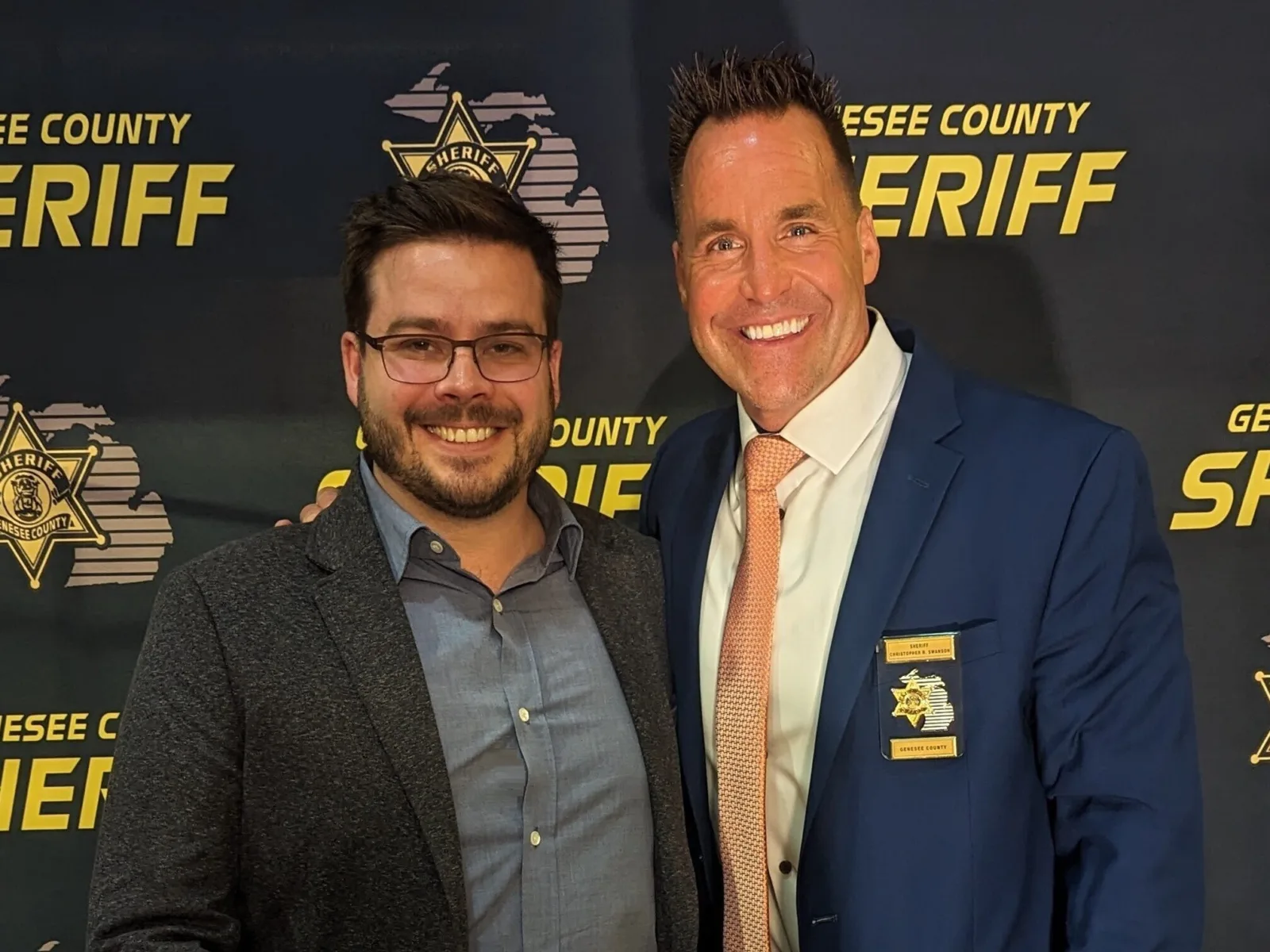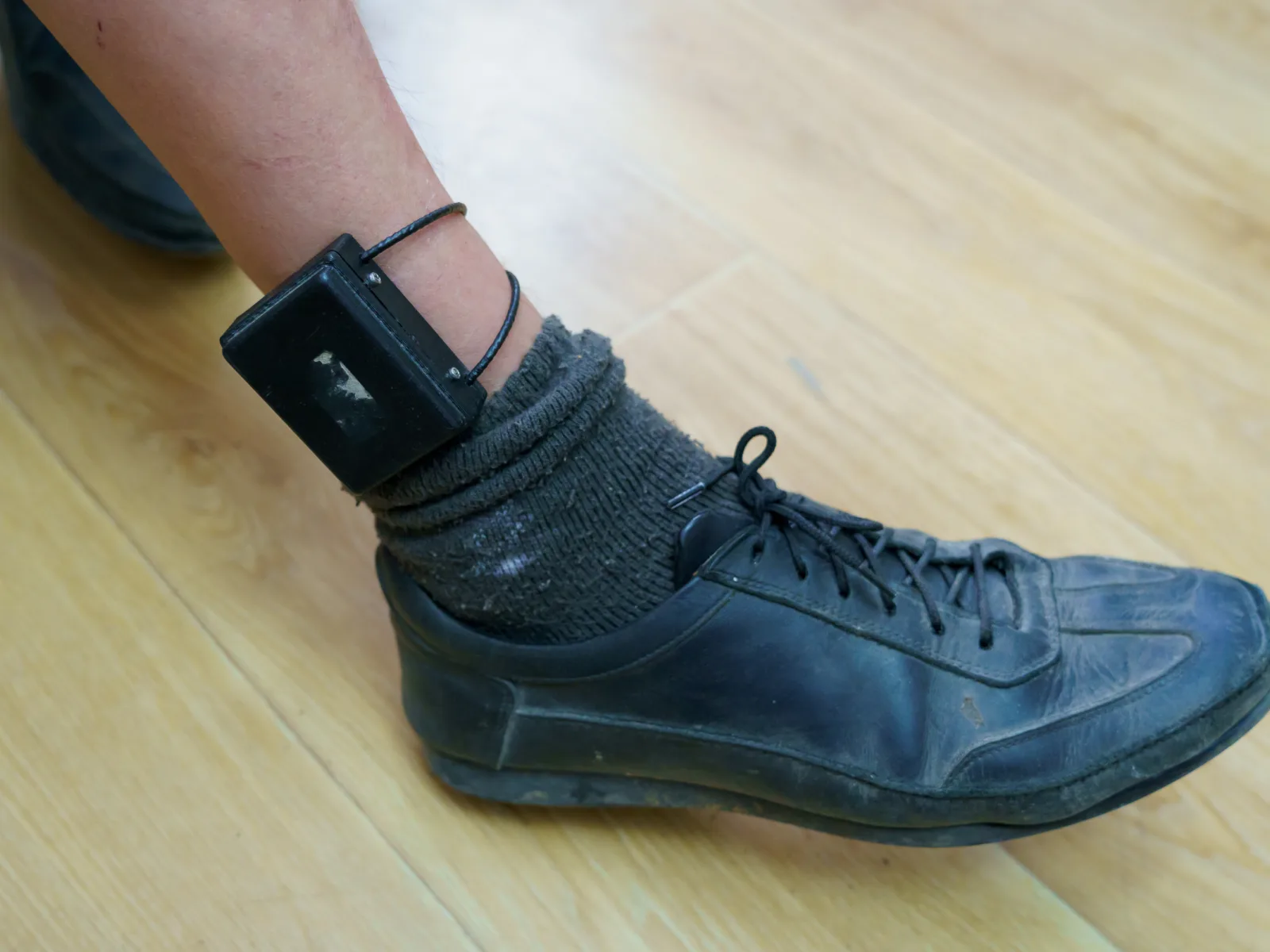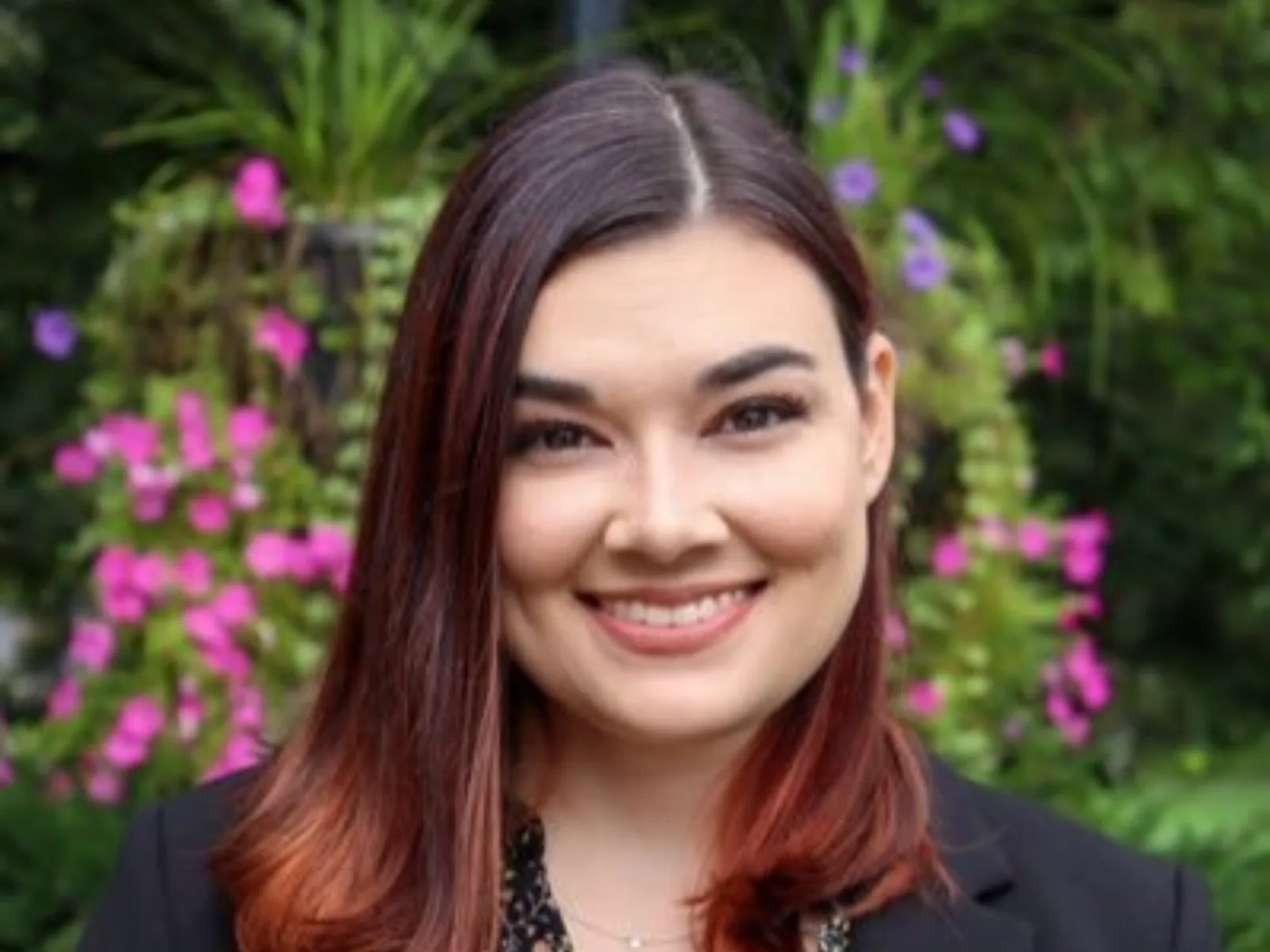Bill Carruthers was once a familiar face to local criminal justice and behavioral health officials. In his home state of Georgia, Carruthers spent years cycling in and out of prisons, jails, and rehab facilities, struggling with mental illness and substance use disorder.
“Fifteen years ago,” says Carruthers, 64, “all I had was an extensive criminal history spanning four decades, a dope habit, and a backpack filled with dirty socks and the wreckage of a life, due to years of real dysfunction.” Now in long-term recovery, Carruthers has founded Recovery on Fire, his own business, and Grit and Grace, a recovery community organization that pairs peer mentors like him with people who are struggling with substance use and serious mental illness. He is also the project developer for the Rockdale County Stepping Up Initiative, adapted from the national Stepping Up Initiative, the purpose of which is to reduce the number of people in jails who suffer from mental health challenges and substance use disorders.
Most jurisdictions are home to a small population of people who, like Carruthers used to do, frequently come into contact with the criminal justice and behavioral health systems. Termed “familiar faces,” they tend to suffer from complex behavioral and mental health issues that no single agency can adequately address, leading to cycles of crisis that harm them, their families, and their communities.
Too often, local communities lack resources to provide the support that this population desperately needs. This includes workforce shortfalls, inadequate funding, and a lack of data to identify and coordinate care. Because of this, experts say that states must play a role, both as policymakers and funders, in helping communities design evidence-based responses. In an effort to put this strategy into practice, The Council of State Governments (CSG) Justice Center, supported by Arnold Ventures (AV), led the States Supporting Familiar Faces Project from 2021 to 2023, working with all three branches of government in Georgia and New Mexico.
“We know that we’ve asked our law enforcement agencies and criminal justice system to take on more problems than they are able to properly address,” says Marc Krupasnki, director of criminal justice at AV. “This is not to place blame, but rather a recognition that we need responses and solutions that best meet people’s needs rather than increase burdens and harms on individuals, law enforcement, and the public sector more broadly.”
A Focus on Evidence and Lived Experience
In a new report, the CSG Justice Center details strategies that Georgia and New Mexico used to bolster services for familiar faces.
“Familiar faces are people who touch a lot of systems but fall through the cracks in terms of the way that the systems work with each other,” says Hallie Fader-Towe, interim director of behavioral health at the CSG Justice Center. “The project worked on connecting people from local and statewide systems with a focus on helping familiar faces get the services they need.”
Familiar faces are people who touch a lot of systems but fall through the cracks in terms of the way that the systems work with each other.Hallie Fader-Towe interim director of behavioral health at the Council of State Governments Justice Center
The organization approached leaders in the judiciary of both states to champion the project and set up state-level task forces. Over a period of 18 months, the CSG Justice Center’s Behavioral Health team worked closely with the judiciary, the legislature, and the executive branch in both states, helping them to analyze data across the criminal justice and behavioral health systems in order to understand who used those systems most frequently. The team conducted qualitative analysis, holding meetings with behavioral health system stakeholders, focus groups with criminal justice agencies, and panels on data sharing. Subject matter experts provided recommendations to the state task forces on topics from housing to competency to stand trial.
“We would work with commission members to examine the data collected from the latest research and fieldwork to determine best practices for familiar faces in their states,” explains Marilyn Leake, senior policy analyst on the Behavioral Health team at the CSG Justice Center. “Using this information, commission members created a set of recommendations which were then presented to policymakers.”
The team also held structured listening sessions with people who have lived experience of the justice and behavioral health systems.
“We asked them about the biggest challenges they see as people who not only have navigated the systems themselves but are now helping other folks in the community navigate them,” says Ryan Carlino, a senior policy analyst of behavioral health at the CSG Justice Center. “We heard their thoughts on strategies that could be useful for this type of familiar faces work.”
Some of the policies that were ultimately implemented came directly from people with lived experience, such as providing emergency housing and building more local treatment options in New Mexico, and funding jail “in-reach” programs and expanding peer support in Georgia.
The report from the CSG Justice Center, published November 2023, shares lessons learned, providing a roadmap for other states seeking ways to help people who are familiar faces in their communities.
“They might just try”
In Georgia, legislators, courts, law enforcement, and community health workers have long contended with the challenge of familiar faces.
“All of us who’ve worked around the criminal justice system know that every community has a small group of people who revolve in and out of the criminal justice system, who have an underlying serious and persistent mental illness,” says Kevin Tanner, commissioner of the state’s Department of Behavioral Health and Developmental Disabilities.
In 2019, the state’s Behavioral Health Reform and Innovation Commission formed a familiar faces task force, with Tanner as commissioner and chaired by the chief justice of the Supreme Court of Georgia. The CSG Justice Center connected with that task force, offering to help gather data and provide expert recommendations as they changed policies.
Working with the CSG Justice Center team, Fulton County conducted a study using three years of data across jail, homelessness, and community service providers to analyze 100 people who used services most frequently. The study found that they were booked in jail 10 times more often and used 20 times more jail bed days than the general population. That cohort alone cost the county $100 million in jail beds. Using this data, the Fulton County team identified people to focus its outreach and treatment efforts on.
The task force launched pilot programs for familiar faces in Fulton and four other counties. They implemented recommendations to expand access to housing; adopt statewide definitions of common terms, such as “serious mental illness”; reform the state’s competency-to-stand-trial process to improve outcomes; improve coordination between jails and community services systems; implement universal jail screening; and use standardized metrics to evaluate the impact of these changes.
“Being able to provide wraparound services benefits the person, the community, and the jail,” Tanner says. “It also saves a tremendous amount of money.”
Being able to provide wraparound services benefits the person, the community, and the jail.Kevin Tanner commissioner of the state’s Department of Behavioral Health and Developmental Disabilities
As part of its effort to improve coordination between jails and community service systems, the state also improved “in-reach” processes for peer mentors in jails. Carruthers has lent his boundless energy to that initiative. His team visits jails in Rockdale and Gwinnett Counties each Monday, Tuesday, and Friday, providing peer mentoring, connections to much needed services (like housing and treatment), guidance on using technology, and more general support to live a healthy, well-balanced life. They also work with the local mental health court, DUI court, and family court to provide community support groups for familiar faces.
“Everybody says they don’t really want assistance,” Carruthers says. “Yeah, they do. You’re just not speaking a language that’s appealing or attractive or even understandable for them. And if you can find better language, then they want to hear what you’ve got to say. If you can show them how to stay out of the penitentiary, take care of their kids, put their addiction at bay, and live a life of health and wellness, then they might just try.”
“We can really make a change”
New Mexico faced problems similar to those in Georgia. A large number of people were living on the streets of large cities like Albuquerque, Santa Fe, and Las Cruces. Many were experiencing mental illness and substance use disorder, cycling through the court system, and finding inadequate services to assist them.
“The existing resources were not being utilized well in providing treatment for people who came into contact with the court,” says Sen. Jerry Ortiz y Pino, chairman of the New Mexico Senate Health and Human Services Committee. “We were struggling with how to use the contact people have with the courts as an opportunity to access treatment, and how to make that treatment more effective.”
In 2020, the New Mexico Supreme Court appointed a commission to explore reforms, including changing competency-to-stand-trial statutes. Around that time, the court connected with the CSG Justice Center to get involved in the familiar faces project.
Justice Briana Zamora of the Supreme Court championed the implementation process, bringing together leaders from all three branches of state government and guiding the task force. To support the effort, the CSG Justice Center team helped gather information and share expert recommendations.
Bernalillo County used existing jail data to identify familiar faces with multiple jail bookings during an 18-month period. This population of 216 people had a total of more than 4,600 visits to hospital emergency departments, and 92% of those people visited more than once in 2020.
proportion of people who visited Bernalillo County hospital emergency departments more than once in 2020
Focusing on that population, the task force developed a set of recommendations to implement in a selection of counties, with support from the state, law enforcement, courts, and community service providers. They reformed the state’s competency-to-stand-trial process, broadened access to housing, expanded access to medication-assisted treatment for opioid use disorder in rural areas, and implemented standardized metrics to evaluate impact.
Zamora said that, from her perspective, the pilots have already provided solutions to problems she long witnessed from the bench.
“With adequate resources and adequate solutions,” she said, “we can really make a change in how frequently these individuals come before the court.”
Continuing the Work
The report from the CSG Justice Center points to a number of longer-term recommendations, including addressing workforce shortages in behavioral health departments, strengthening data collection, and creating a clearinghouse of successful practices for other jurisdictions to draw from.
For their part, officials in both Georgia and New Mexico are maintaining their pilot programs and extending services to other local communities, including additional pilots, diversion programs, and wraparound services for familiar faces that will help them come into contact with the justice and behavioral health systems less frequently. They also plan to track the data closely in order to monitor what is working.
For Carruthers, both his personal story and his tireless work to help familiar faces demonstrates the tremendous potential that this collaborative approach has to change people’s lives for the better.
“I realized that I need to give myself away and become a support for people,” he says. “Together, we can create a better opportunity. Together, we are stronger. And when I moved from being a ‘me’ to being a ‘we,’ I could show people the positive result. Everybody really wants that.”






















